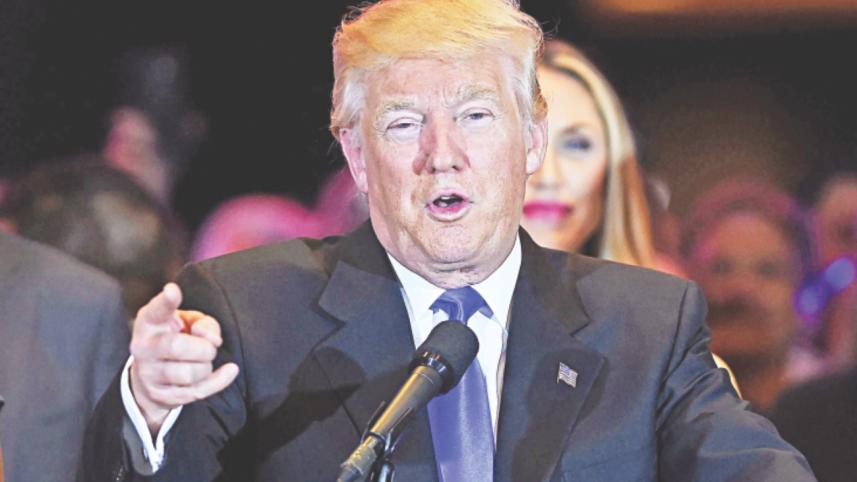'War in GOP' after Trump's win

His swift march from fringe curiosity to presidential nominee all but over, Donald Trump was confronting dangerous new challenges as the Republican Party he aspires to lead teetered on civil war and questions emerged about how he will fund his campaign going forward.
Republican lawmakers, operatives and donors grappled with whether to support Donald Trump, who effectively clinched his party's presidential nomination this week after his two remaining rivals, Ted Cruz and John Kasich, dropped out of the White House race.
As Trump sought to rally the fractured party behind him, many prominent Republicans got behind the reality TV star and real estate developer, while some weighed their options. Still others said they might vote in the Nov. 8 general election for Hillary Clinton, the likely Democratic nominee.
Late Wednesday the top Republican in the Senate, Mitch McConnell, publicly endorsed Trump's candidacy "to prevent what would be a third term of Barack Obama."
While the hierarchy of the party called for a rallying of support behind Trump, rebellion simmered both in the rank and file of the party and also among some of its more prominent figures. “If we nominate Trump, we will get destroyed.......and we will deserve it,” Senator Lindsey Graham of South Carolina, who was among the original 17 Republicans runners.
Republican former presidents George HW Bush and George W Bush do not plan to endorse anyone in the White House race this year, their spokesmen told Reuters.
It is the scenario that many had feared, a Trump candidacy threatening to tear the Republican Party, also known as the GOP, apart. It is unclear what influence party leaders can have.
Trump meanwhile acknowledged that he may be obliged to start taking more money from outside donors. He has spent about $44 million of his own fortune getting to this point, but a general election campaign could cost upwards of $1 billion. That risks damaging his carefully cultivated image of being a self-funded candidate, however.
The Clinton and Trump fight sets of something unprecedented in US history: both are widely unpopular.
Two thirds (65 percent) of voters have unfavorable opinions of the Republican billionaire, and only a quarter (24 percent) think positively of him, according to a recent Wall Street Journal/NBC survey. In Clinton's case, 56 percent are down on her, while only 32 percent see her in a favorable light, the same poll found.



 For all latest news, follow The Daily Star's Google News channel.
For all latest news, follow The Daily Star's Google News channel.
Comments